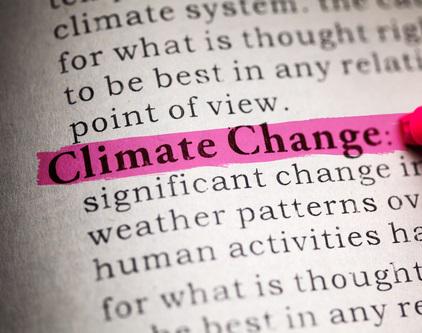Just a mere six years ago, an international climate treaty was on the verge of becoming possible, though there was still a wide gap between the concept of it being a reduced carbon global economy and the ability of the capital market to deliver on it.
Costly green technology, coupled with a good dose of scepticism concerning climate change, as well as a heavy reliance on coal and oil were originally thought to be the main reasons CEOs were reluctant to adopt the treaty.
Climate change now being taken more seriously by big business
This shift in public perception of climate change comes not a moment too soon, with estimates from the International Energy Agency that a global investment of an extra $1 trillion per annum into clean energy is needed if we are to avoid the catastrophic consequences of climate change on the world and its economy.
Both businesses and investors are cleaning up their acts with less reliance on fossil fuels while advocating for better climate change policies, such as better price caps on carbon emissions.
Such developments may be a sign of better things to come, with law makers slowly following suit as global action on climate change grows.
This hinges on global leaders establishing tangible measures to tackle climate change internationally at the Paris climate talks later this year.
Business taking responsibility for their actions spurred on by multiple factors
It is believed the following points all contributed to the change in the mind-sets of big businesses;
- Companies are embracing the fact that climate change is a reality and may even be affecting their bottom line profits. Shell CEO Ben van Beurden has himself admitted that renewable energy is going to play a significant role in meeting energy needs in the future.
- Renewable energy is becoming more cost competitive with fossil fuels, where the cost of solar PV has fallen drastically over just a few short years. Enormous PV projects are being undertaken in the West which are proving just as competitive regarding cost and size as natural gas plants.
- The Wall Street Journal has even stated that renewable energy is going to be a permanent fixture in the future, regardless of the fact that oil prices have fallen to just $50 a barrel. Renewable sources are becoming more economically competitive.
- Investors are realising the risks associated with fossil fuels such as wasteful expenditure on developing fossil fuel reserves when oil demand is weakening on a global scale and carbon-reduction trends are at play.
- Massive decline in coal demand has seen prices fall drastically. Companies such as well-established Consol Energy are looking at investing in natural gas now, while China, being the globe’s largest coal consumer is taking measured steps in reining in their reliance on coal.
- With the advancements of energy storage technology which will bring the scale of renewable energy into the commercial sector is a big part of alternative energy’s success.
- Well-known companies are taking a stand urging for better policies in reducing carbon emissions which include state-level renewable portfolio standards, EPA efforts to reduce power plant pollution, and a strong international climate agreement. Over 200 businesses sign a letter showing support for EPA’s Clean Power Plan, where signatories include Kellogg’s, IKEA and VF Corp.
- Business climate change advocates and investors are pushing hard for climate action, where 350 investors of a $24 trillion asset fund urged governments to stop adopting meaningless carbon pricing acts and look at an ambitious climate policy to tackle the issues at hand while abolishing fossil fuel subsidies altogether.
Renewable energy an undeniable part of world’s future energy sources
It’s only a matter of time before we are living in a low-carbon world, so government law makers must begin to take heed. It’s imperative for elected heads to listen to what the people want and recognize the importance economically speaking to take action when tackling climate change.



